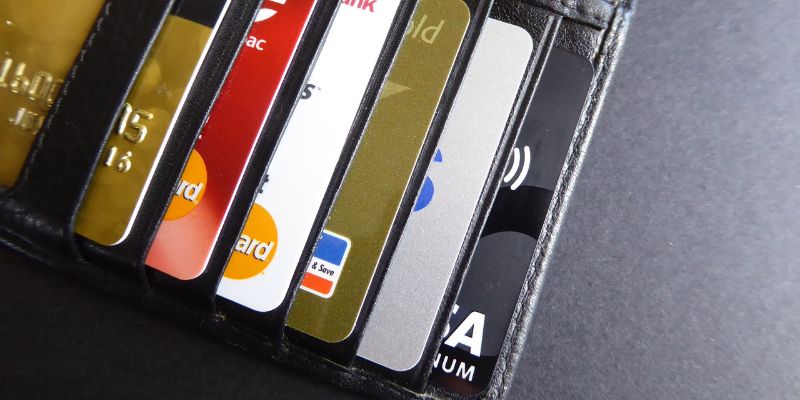When you refinance your home, you might replace your existing mortgage with a brand-new one. One of the many benefits that come with refinancing is having a cheaper interest rate. However, this is just one perk. The process of refinancing a mortgage is not a money-saving option for everyone.
This topic needs to be examined in light of the specifics of your financial situation. If you believe getting a mortgage would benefit you, you should consider the potential savings. In addition to understanding why you should refinance, you must also understand when you should do so.
You may be able to refinance your mortgage and obtain a lower interest rate, even if you had previously committed to a higher interest rate before the recent epidemic hit the economy. But there are other things to take into account.

How Does Refinancing Work?
When you purchase a property, you must obtain a mortgage to pay for the purchase. The money is transferred from the lender to the person selling the property. Getting a new mortgage is part of the process of refinancing a house.
The amount of the previous mortgage is paid off by the new mortgage, so the money does not have to go to the person selling the home. Like with the original mortgage, you'll need to meet the lender's requirements to be approved for a loan while refinancing a mortgage.
You start by applying, then move on to the underwriting phase, and finally, you attend the closing on the property, just like you did when you originally purchased it. Refinancing may not be the best financial option when you know you'll be moving out of your house over the next few years, or your credit is less than stellar.
When Should You Refinance Your Mortgage?
No one golden rule dictates when you should refinance your mortgage. It depends on your goals, budget, and intentions as a homeowner. When it may be beneficial to consider refinancing, the following are some guidelines:
When Refinancing Shortens Your Loan Duration
In the long run, it might be beneficial to refinance your debt to shorten its duration if you find yourself in a position where you can do so. You should be aware that doing so will likely increase your monthly payment.
However, the fact that you will pay off the mortgage sooner could result in a reduction in the total amount of interest you pay over the length of the loan. You can use the refinancing mortgage calculator to determine how your monthly mortgage payments will change depending on your chosen loan terms.
When Interest Rates Are Low
You can save money on a loan's interest payments if you refinance your mortgage to a cheaper rate. Using an online refinance calculator, check how interest rates affect your monthly payments.
Using this method, you may determine if the potential savings from a reduced interest rate are worth the additional expense of a delayed closure. If the difference between the previous and new interest rates is minimal enough (considering things like the size of the loan), you may still come out ahead.
You might also choose to hold out and hope that rates drop in the future, allowing you to save more money. Do the math yourself or consult an expert to find out what works best for your situation.

The Value Of Your Residence Has Gone Up
Suppose the value of your house has increased. In that case, refinancing could benefit you, especially if you have an additional high-interest debt to pay off or another financial goal to achieve. A cash-out refinance you to take out a new mortgage for an amount more than what you owe on your current mortgage and receive the difference in cash.
A home equity loan is an option, but there is also something called a cash-out to refinance. You might also consider getting a cash-out to refinance if you want to change your home or pay for your child's schooling.
However, you will want to check to ensure that the interest you pay on the mortgage does not end up being higher than the interest you would pay on any other debt that you use the cash to pay down.
When You Drop PMI
If getting a new mortgage will allow you to cancel PMI, then that's another reason to consider doing a refinance (PMI). If the equity in your house is less than 20%, private mortgage insurance will likely be a must if you made an initial down payment of 10% on a home.
Your home's equity will reflect the increasing worth of your home as a result of the real estate boom. You can potentially reduce the size of your down payment by using your home equity gains as collateral when you refinance and therefore surpass the 20% mark.
Refinancing might not be necessary if you can get your down payment up to 20% of the loan balance with only a few more monthly payments on your current mortgage. A mortgage may refinance loan could be beneficial if it allows you to save money that would have gone toward PMI payments over a longer period and has more favorable terms than your present loan.
Conclusion:
Before deciding whether refinancing makes sense for your current financial circumstances, you must consider several considerations first. If you bought your home or refinanced recently during a time of higher interest rates, or if you find yourself in any of the other situations listed above, you may want to consider refinancing your home now.
You may simplify the process of crunching the figures using a mortgage refinance calculator. When you are ready to take the next step, consult a mortgage lender who can analyze your objectives and explain how a refinance would help you achieve those objectives.




